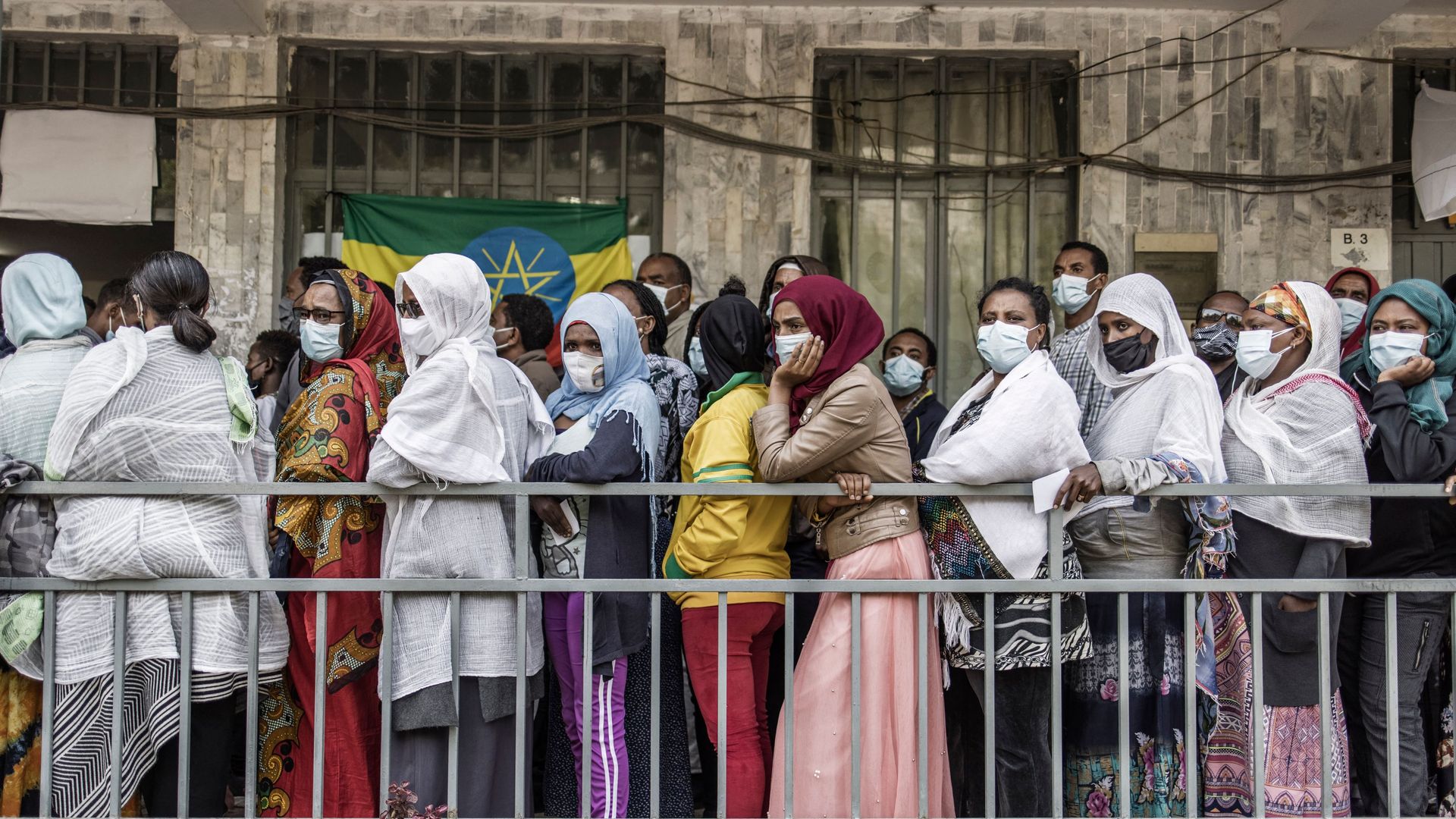Jun 21, 2021 - World
Ethiopia holds a vital, flawed election
Add Axios as your preferred source to
see more of our stories on Google.

Waiting to vote in Addis Ababa. Photo: Marco Longari/AFP via Getty
Add Axios as your preferred source to
see more of our stories on Google.

Waiting to vote in Addis Ababa. Photo: Marco Longari/AFP via Getty